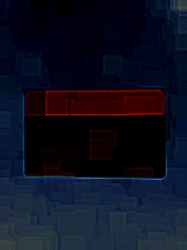I have made a 5*5 kernel using np array in python. how should I create it in c++?
kernel_sharpen_3 = np.array([[-1, -1, -1, -1, -1],
[-1, 2, 2, 2, -1],
[-1, 2, 2, 2, -1],
[-1, 2, 2, 2, -1],
[-1, -1, -1, -1, -1]]) / 8
rescaled_image = cv2.filter2D(rescaled_image, -1, kernel_sharpen_3)



